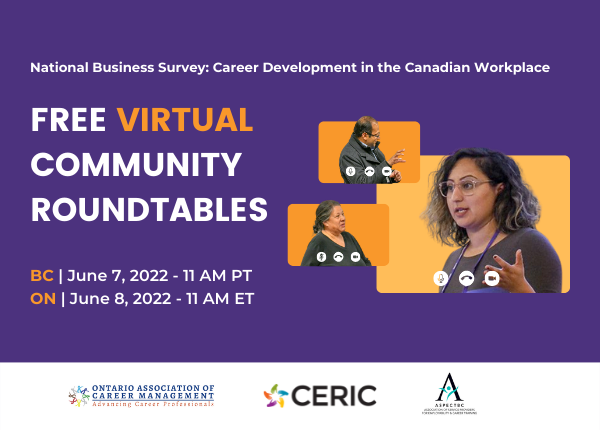
CERIC and partners to host Virtual Community Roundtables on Employer Engagement
May 16, 2022
Supporting international students’ career development from a strengths-based lens
June 14, 2022Lindsay Purchase

Like the “future of work” and other overused, often misunderstood terms before it, the “Great [fill-in-the-blank]” has become a stand-in for any and all mainstream discussion connected to career development.
So, why use this construct and release a Careering issue on “The Great Careers Disconnect”? Because within this conversational anchor about labour market shifts, there is so much that’s going unsaid. And career professionals are ready to say the quiet part loudly.
Given that 45% of employers say they are not aware of career development professionals, according to a recent survey by CERIC and Environics, and LMIC research shows that only one in five adults have accessed career services, it is not surprising that public conversations around careers are narrowly focused. But it is a problem.
For this issue of Careering magazine, we asked people working in all areas of career development to reflect on the question: What gaps are you seeing in career services, career education, the labour market and the workplace – and what are your ideas to address them?
Those working with youth spotted disconnects between employer hiring practices and student needs, as well as in the piece-meal approach to K-12 career development across the country. One author questioned why career professionals don’t talk more about unions, while another explored the issue of values disconnects at work.
While articles raise key challenges in the “Great Careers Disconnect,” this issue is also about highlighting creative solutions and building bridges.
Several articles reflected a desire to improve equity, diversity and inclusion within career development systems, including building a sustainable future of work for the Black community and supporting jobseekers with disabilities to identify their strengths. Others identified key improvements that can be made to support newcomer professionals and international students.
Of course, we can’t cover it all. If this issue sparks ideas for you about disconnects in work and education, talk about it! Start a conversation with colleagues. Advocate for change. Write about your curious questions and thoughtful solutions (shameless plug: Maybe for CERIC’s CareerWise website? All are welcome.).
For now, happy reading!

